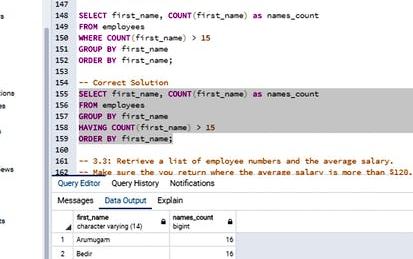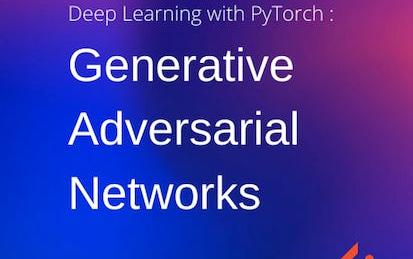

Our Courses

Data Analytics Foundations for Accountancy I
Welcome to Data Analytics Foundations for Accountancy I! You’re joining thousands of learners currently enrolled in the course. I'm excited to have you in the class and look forward to your contributions to the learning community.
To begin, I recommend taking a few minutes to explore the course site. Review the material we’ll cover each week, and preview the assignments you’ll need to complete to pass the course. Click Discussions to see forums where you can discuss the course material with fellow students taking the class.
-
Course by

-
 Self Paced
Self Paced
-
 67 hours
67 hours
-
 English
English

Image and Video Processing: From Mars to Hollywood with a Stop at the Hospital
In this course, you will learn the science behind how digital images and video are made, altered, stored, and used. We will look at the vast world of digital imaging, from how computers and digital cameras form images to how digital special effects are used in Hollywood movies to how the Mars Rover was able to send photographs across millions of miles of space. The course starts by looking at how the human visual system works and then teaches you about the engineering, mathematics, and computer science that makes digital images work.
-
Course by

-
 Self Paced
Self Paced
-
 21 hours
21 hours
-
 English
English

Introduction to Node-red
By the end of this project, you will learn the basic concepts and fundamentals of Node-red.
-
Course by

-
 Self Paced
Self Paced
-
 2 hours
2 hours
-
 English
English

Public Involvement in Research
This course focuses on participatory approaches in research, known as 'public involvement' in the UK. You'll specifically, consider why citizens and patients would be involved in research and explore participatory approaches across and within the research cycle in more detail, diving into questions such as: - what kinds of participation can be undertaken at each of the 7 stages of the cycle? - how can you utilise participation in research?
-
Course by

-
 Self Paced
Self Paced
-
 34 hours
34 hours
-
 English
English

Contact Center AI: Conversational Design Fundamentals
Welcome to "CCAI Conversational Design Fundamentals", the first course in the "Customer Experiences with Contact Center AI" series.
-
Course by

-
 Self Paced
Self Paced
-
 4 hours
4 hours
-
 English
English

Qlik Sense for Beginners: Analyze and Visualize Data
In this hands-on project, learners will develop the essential skillset to excel in data analysis and storytelling using Qlik Sense. Through guided instruction, learners will become proficient in navigating the Qlik Sense platform, harnessing its powerful features, and efficiently loading data for analysis. By integrating multiple datasets, learners will conduct a comprehensive customer churn analysis, capitalizing on Qlik Sense's Auto-Analysis capabilities to uncover meaningful patterns, derive insights, and make informed business decisions.
-
Course by

-
 Self Paced
Self Paced
-
 4 hours
4 hours
-
 English
English

Terraform Fundamentals
This is a self-paced lab that takes place in the Google Cloud console. In this hands-on-lab you will create infrastructure, a virtual machine, using Terraform in the cloud environment.
-
Course by

-
 Self Paced
Self Paced
-
 1 hour
1 hour
-
 English
English

Positive Psychiatry and Mental Health
In today’s world, mental illness and distress are common and these account for a significant burden of disability within our community. At the same time, there is a growing interest in understanding and enhancing positive mental health and wellbeing; particularly from developments in the fields of positive psychology and mental health promotion.
-
Course by

-
 Self Paced
Self Paced
-
 20 hours
20 hours
-
 English
English

A Public Health Approach to Hearing Loss and Aging
At the Johns Hopkins Cochlear Center for Hearing and Public Health, we are dedicated to training up the next generation of clinicians and researchers to study the impact that hearing loss in older adults has on public health and to develop and implement public health strategies and solutions for hearing loss.
-
Course by

-
 Self Paced
Self Paced
-
 3 hours
3 hours
-
 English
English

Business Intelligence and Visual Analytics
Building on “Data Warehousing and Business Intelligence,” this course focuses on data visualization and visual analytics. Starting with a thorough coverage of what data visualization is and what type of visualization is good for a given purpose, the course quickly dives into development of practical skills and knowledge about visual analytics by way of using one of the most popular visual analytics tools: SAS Viya, a cloud-based analytics platform. An overview of cloud architecture, automation, and machine learning is also provided.
-
Course by

-
 Self Paced
Self Paced
-
 12 hours
12 hours
-
 English
English

Align Continuous Improvements with Impact Mapping in Miro
By the end of this project, you will be able to map product outcomes from multiple evidence streams including key performance indicators and user feedback, so that insights streams can be leveraged together to uncover opportunities for iterative improvements.
-
Course by

-
 Self Paced
Self Paced
-
 2 hours
2 hours
-
 English
English

Foundations of Teaching for Learning: Being a Teacher
The Foundations of Teaching for Learning programme is for anyone who is teaching, or who would like to teach, in any subject and any context - be it at school, at home or in the workplace. With dynamic lessons taught by established and respected professionals from across the Commonwealth, this eight course programme will see you develop and strengthen your skills in teaching, professionalism, assessment, and more. As you carry on through the programme, you will find yourself strengthening not only your skills, but your connection with colleagues across the globe.
-
Course by

-
 Self Paced
Self Paced
-
 12 hours
12 hours
-
 English
English

Wireshark for Beginners: Capture Packets
In this Guided Project, Wireshark for Beginners: Capture Packets, learners will take on the role of a novice security analyst helping a company detect certain network traffic on their server by capturing and analyzing web traffic.
-
Course by

-
 Self Paced
Self Paced
-
 2 hours
2 hours
-
 English
English

Create forms for school or work Research using Typeform
In this 1-hour long project-based course, you will learn how to - use Typeform - create survey forms using Typeform - publish and share your survey forms Note: This course works best for learners who are based in the North America region.
-
Course by

-
 Self Paced
Self Paced
-
 3 hours
3 hours
-
 English
English

Scrape and analyze data analyst job requirements with Python
In this project, you’ll help a recruitment agency improve its job vacancy sourcing by using Python’s web-scraping capabilities to extract job postings from multiple sites. This task will require you to write a Python script to extract job posting data from the source site and save it to a comma separated values (CSV) file.
-
Course by

-
 Self Paced
Self Paced
-
 2 hours
2 hours
-
 English
English

High Voltage Schottky and p-n Diodes
This course can also be taken for academic credit as ECEA 5722, part of CU Boulder’s Master of Science in Electrical Engineering. This course is primarily aimed at first year graduate students interested in engineering or science, along with professionals with an interest in power electronics and semiconductor devices . It is the second course in the "Semiconductor Power Device" specialization that focusses on diodes, MOSFETs, IGBT but also covers legacy devices (BJTs, Thyristors and TRIACS) as well as state-of-the-art devices such as silicon carbide (SiC) Schottky diodes and MOSFETs as wel
-
Course by

-
 Self Paced
Self Paced
-
 19 hours
19 hours
-
 English
English

Introduction to 3D Modeling
On this four-week practical course from the University of Michigan, you’ll not only learn how to use the Rhino software to create your 3D models, but you’ll also gain basic design skills to help bring your imagination to life. This course will guide you through 3D modeling within Rhino, so you’ll cover the fundamentals of the software as well as 3D modeling in general. You’ll first look at how to navigate the user interface and the different tools that you’ll be using to create models throughout this course.
-
Course by

-
 Self Paced
Self Paced
-
 27 hours
27 hours
-
 English
English

Overview of Advanced Methods of Reinforcement Learning in Finance
In the last course of our specialization, Overview of Advanced Methods of Reinforcement Learning in Finance, we will take a deeper look into topics discussed in our third course, Reinforcement Learning in Finance. In particular, we will talk about links between Reinforcement Learning, option pricing and physics, implications of Inverse Reinforcement Learning for modeling market impact and price dynamics, and perception-action cycles in Reinforcement Learning.
-
Course by

-
 Self Paced
Self Paced
-
 13 hours
13 hours
-
 English
English

Performing Data Aggregation using SQL Aggregate Functions
In this 2-hour long project-based course, you will learn how to retrieve data from tables in a database using SQL SELECT statement with SQL Aggregate functions. The aggregate functions we will consider in this project are COUNT, SUM, MIN, MAX and AVG. Aggregate functions are used to summarize data from rows of a table into a single value. In addition, you will learn how to set conditions on the output of an aggregate function using the HAVING clause.
-
Course by

-
 Self Paced
Self Paced
-
 3 hours
3 hours
-
 English
English

Bioinformatics Capstone: Big Data in Biology
In this course, you will learn how to use the BaseSpace cloud platform developed by Illumina (our industry partner) to apply several standard bioinformatics software approaches to real biological data. In particular, in a series of Application Challenges will see how genome assembly can be used to track the source of a food poisoning outbreak, how RNA-Sequencing can help us analyze gene expression data on the tissue level, and compare the pros and cons of whole genome vs.
-
Course by

-
 Self Paced
Self Paced
-
 13 hours
13 hours
-
 English
English

Global Quality Maternal and Newborn Care
This course is designed for administrators, advocates, policy makers, clinicians, and service users. It will give you the background, recommendations, and tools you need to address issues related to high quality maternal and newborn care in your own setting. In particular, you will learn about the evidence behind implementing the midwifery model of care as a means to advancing the health and wellbeing of mothers and babies globally.
-
Course by

-
 Self Paced
Self Paced
-
 18 hours
18 hours
-
 English
English

Deep Learning with PyTorch : Generative Adversarial Network
In this two hour project-based course, you will implement Deep Convolutional Generative Adversarial Network using PyTorch to generate handwritten digits. You will create a generator that will learn to generate images that look real and a discriminator that will learn to tell real images apart from fakes. This hands-on-project will provide you the detail information on how to implement such network and train to generate handwritten digit images.
-
Course by

-
 Self Paced
Self Paced
-
 2 hours
2 hours
-
 English
English

Differential Equations Part I Basic Theory
This introductory courses on (Ordinary) Differential Equations are mainly for the people, who need differential equations mostly for the practical use in their own fields. So we try to provide basic terminologies, concepts, and methods of solving various types of differential equations as well as a rudimentary but indispensable knowledge of the underlying theory and some related applications.
-
Course by

-
 Self Paced
Self Paced
-
 15 hours
15 hours
-
 English
English

Refugees in the 21st Century
This MOOC provides insight into the refugee phenomenon as one of the most complex, compelling and (arguably) misunderstood features of the 21st century. Taking a global perspective, it will outline the fundamentals of who ‘refugees’ are, where they come from and where they go, as well as delving into the features of the global system for refugee protection and ‘solutions’ for those who have been forcibly displaced. It places the student at the centre of the learning experience through engagement with a range of robust and challenging activities, materials and online peer engagement.
-
Course by

-
 Self Paced
Self Paced
-
 28 hours
28 hours
-
 English
English

A Scientific Approach to Innovation Management
How can innovators understand if their idea is worth developing and pursuing? In this course, we lay out a systematic process to make strategic decisions about innovative product or services that will help entrepreneurs, managers and innovators to avoid common pitfalls. We teach students to assess the feasibility of an innovative idea through problem-framing techniques and rigorous data analysis labelled ‘a scientific approach’. The course is highly interactive and includes exercises and real-world applications.
-
Course by

-
 Self Paced
Self Paced
-
 14 hours
14 hours
-
 English
English



